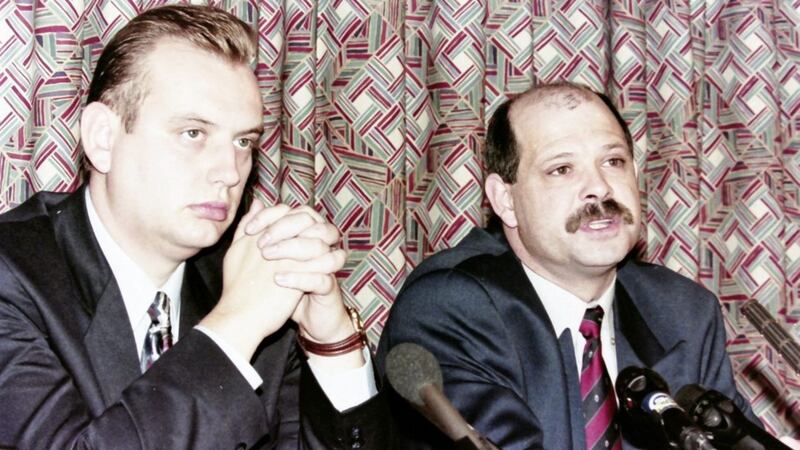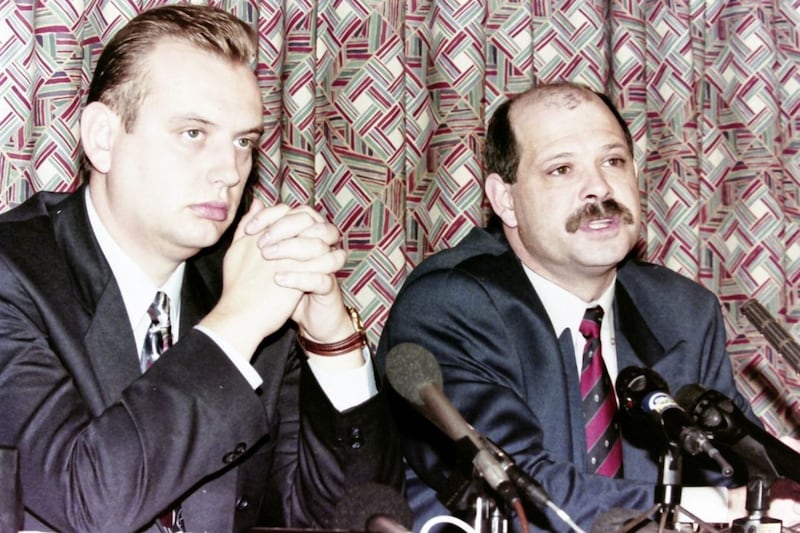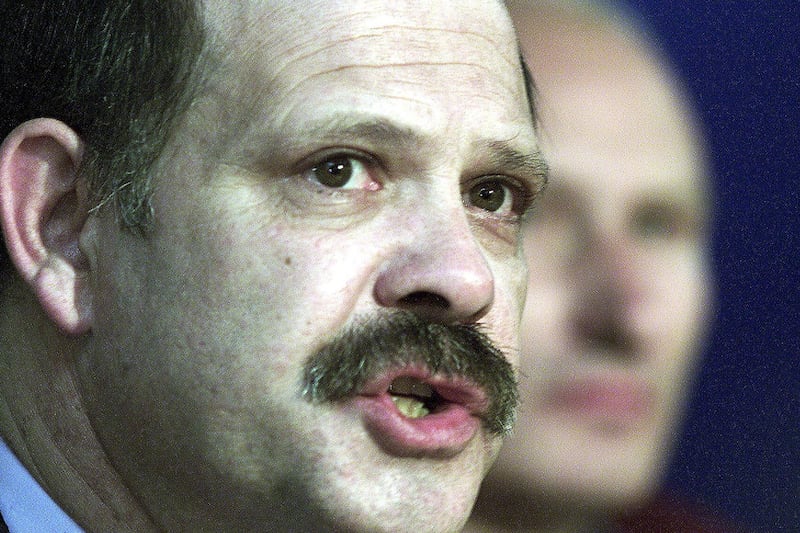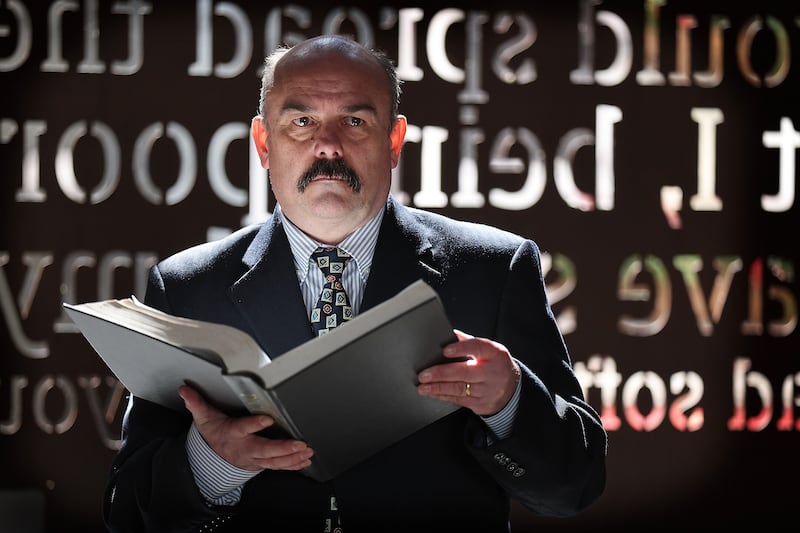THE NIO regarded former UDP leader Gary McMichael as a "weak" figure, but found the PUP's David Ervine an "impressive performer", as the British government embarked on exploratory dialogue with loyalist political parties.
The talks followed a commitment by British prime minister John Major on October 21, 1994 following the ceasefire announced by the Combined Loyalist Military Command on October 13, 1994.
The files reveal NIO officials were engaged in "tortuous discussions" with the UDA-linked Ulster Democratic Party (UDP) about the talks agenda.
"Both the loyalist parties are anxious to gain status, not only by comparison with Sinn Féin but also at each other's expense," according to the records.
"The UDP, in particular, is an incoherent organisation" with little room to negotiate due to the preconditions laid down by the UDA leadership.
Read More
- Fraudulent voting common in 1990s but main culprits were not Sinn Féin
- Irish diplomat angered by withdrawal of RUC protection
- NIO anger at Albert Reynolds' public handshake with Gerry Adams
The opening meeting at Stormont Castle on December 15, 1994, described by Jonathan Stephens of the NIO as after "relaxed introductions, a series of robust, often antagonistic, exchanges followed on arms, prisoners and the denial of public funds to loyalist projects", with the loyalists saying "early movement in arms was unrealistic but the government should make an early signal gesture on prisoners `to cement the process'."
The NIO maintained the importance of arms, ruling out that early prisoner releases.
Its team said it was "not the gun and the bomb" which had brought the parties to the table, but their association with violence had created the need for exploratory dialogue before they could enter "normal political life".
UDP leader Gary McMichael claimed loyalists had "a latent mandate" because they had "dictated the peace".
Read More
- Tánaiste critical of British response to IRA ceasefire
- Patrick Mayhew believed 'everything to be played for in New Year'
Mr Ervine said the government was a "bit player" when it came to arms, which was "a crux between loyalists and republicans" that could not be resolved until trust was built.
Loyalists wanted to retain their arms as long as there was a possibility of a republican offensive.
Both parties expressed disappointment the government had "so far made no gesture" on paramilitary prisoners.
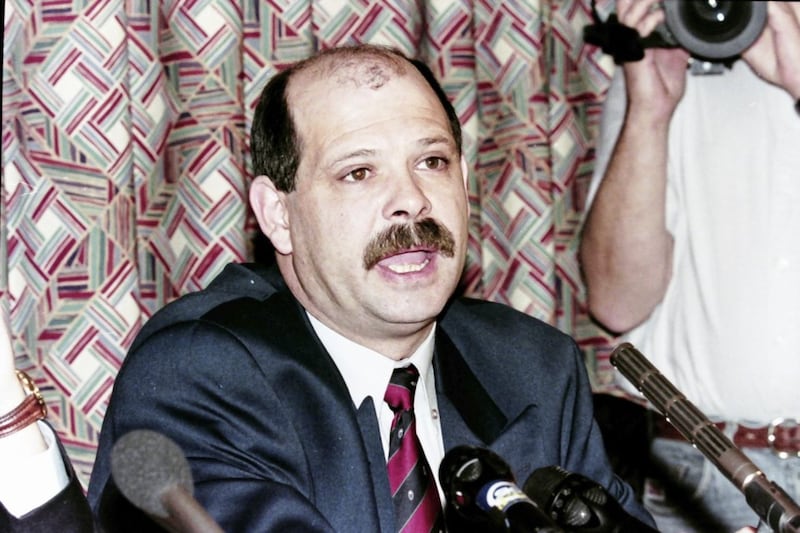
Mr Stephens concluded that Billy Hutchinson and David Ervine had led for the PUP, while Gary McMichael led for the UDP "with his strings rather obviously operated by Mr [Joe] English [a prominent UDA commander]".
The second meeting on December 13, 1994 was overshadowed by the sectarian murder of a Catholic student in the Village area of Belfast which all sides condemned.
Read More
- Martin McGuinness accused NIO of 'brass neck' in branding IRA arms the stumbling block to talks
- Historic talks between British government and Martin McGuinness revealed
Both loyalist groups demanded an "imaginative" approach to the prisoners issue, including a phased release, while the government tabled a paper on arms which the loyalists agreed to address at a future session. [Martin McGuinness had rejected a similar paper tabled by the NIO at their talks.]
NIO official Stephen Leach said the "brutal murder... had many of the hallmarks of a terrorist murder" and might breach the ceasefire.
Both Mr Hutchinson and Mr McMichael said the murder was abhorred and this was supported "with vigorous nodding of heads".
Mr Ervine raised concern about a device found in Enniskillen, but the NIO was "satisfied the IRA intended to stand by the ceasefire".
